Apple TV+ "Trying" stars Rafe Spall and Esther Smith sat down with AppleInsider during their tour of U.S. cities, as the show's third season enters its home stretch.
In May of 2020, about six months after the launch of Apple TV+, the streaming service debuted "Trying," a charming half-hour comedy series about a couple and their quest to become parents. In the series, set in and shot in London, Jason and Nikki (Rafe Spall and Esther Smith) struggle to conceive, before eventually deciding to adopt.
The second season arrived almost exactly one year after the first, but the third season made a late July debut on Apple TV+. The second season ended with the couple getting approval to take a girl, Princess, home with them- only to find that her brother, Tyler, had stowed away in their car.
With the current season of the show currently rolling out, Spall and Smith have embarked on a tour of the United States, and AppleInsider sat down with them during the Philadelphia stop on August 16. The actors discussed the new season, the once-a-week and binge models for streaming, working with Apple, and what they're told about viewership statistics.
AppleInsider: First of all, what is the "big idea" in the new season? How does it differ in any way from what we've seen on the show in the past?
Esther Smith: I guess in season 3, Nikki and Jason have got not just one kid, but two, which they're also just trying- the whole obstacle this [season] is trying to keep these two children together. Because Tyler, Princess' brother, was a bit of a surprise guest when he popped up in the car in [season] 2. So yea, the whole thing is to try to keep them together, with all these other things going on - they might lose their flat. And also, they want to try and bond with these children, because they're still out of the woods yet, with the process.
Rafe Spall: And I guess the jeopardy comes with the fact that they need to bond with these children, and because they want them to be comfortable in their new home, but the more they bond with them, the higher the stakes become when they might be taken away. So, they have to do this, and they want to give... all their love to these young kids, but the more they connect with them, the more difficult the idea comes that they might not be left with them. So I guess that's where the jeopardy lies.
AppleInsider: I don't know how far in advance the series was planned — was it always the idea that they would adopt kids who are older, as opposed to a baby?
Esther Smith: I think it's season-by-season. I think there are always kinds of ideas, but they always shift and change, depending on new thoughts that might come into people's heads. But I think very early on, in [season] 1, it's kind of flagged that they might not get a baby because there are so few of them in the system. So I don't know how much that was [planned].
Rafe Spall: Actually, I'd say you get more mileage out of older kids. That's more drama, there's more comedy because they've got their own little personalities. You know, so I think that's a dramatic device that just makes a bit more sense.
AppleInsider There was some old sitcom, I don't remember which, where they had a baby in one season, and in the next season the kid was four. It was easier to tell stories that way.
Rafe Spall: Yes, and also, they cry less.
AppleInsider: The show is known for being very funny, but it's also very sweet. Is it ever a challenge to keep the balance between those two?
Rafe Spall: No, because I think that in my own experience in life when the going gets tough, I tend to use comedy as a way of coping. And that's very human. I think we all use coping mechanisms. So to me, all comedy is based in a truth, there's nothing which is too much of a leap, or too unbelievable, even though there are some big set pieces in our show, there are always just about believable, they're always rooted in truth.
We're dealing with a subject matter which is very sensitive to people, and we're using, I guess, comedy to deal with it. But it seems close to life, to me.
Esther Smith: I think also, the writing is so good in this. Andy [Wolton, the creator of the series] has written every single episode over three [seasons].
Rafe Spall: Which is very rare.
Esther Smith: It's so rare. But he's just so good at having those two things that live next to each other, comedy and kind-of really heartbreaking human moments, it just makes it easier to play, it's his writing.
Rafe Spall: I don't find it difficult. People also ask if it's difficult to bridge the gap between comedy and drama. No- like, everything is funny. I've done Ibsen plays, and there's comedy in them. I just finished doing "To Kill a Mockingbird" in the West End, a ton of laughs, a ton. Massive laughs, every night.
That's what someone like Aaron Sorkin does — every dramatic scene has a joke in it, at least one joke. Because it's a very powerful audience device because it draws you in. Because the reason we laugh at things, it's because they're identifiable, that's simply why things are funny. Because we go 'oh yea,' that's happened to me, so it makes you feel involved. Comedy is inclusive, at its best, it should always be.
AppleInsider: Yeah, I just saw the Sorkin "To Kill a Mockingbird," the tour was just here a couple of weeks ago, it was very good.
Rafe Spall: You should have seen my one, it was much better.
AppleInsider: So the big question these days with streaming shows is, should people binge them all at once, or should people watch one week at a time, and also with the streaming services themselves, whether or not they should release them all at once. I believe with your show it was the first three that debuted at once.
Esther Smith: It was the first two [this season].
Rafe Spall: Actually, the whole first season was released in one go. And they wised up for the second season and did them weekly, and now the third season is the same- the first two, and the rest of them incrementally related on a weekly basis. And I think it's the best of both worlds.
If you're an avid viewer of 'Trying,' then I think it's nice to watch it week by week, but if you're just coming into it you've got a whole cache of great episodes to watch and get into. But I prefer shows to get dropped weekly.
AppleInsider: So do you prefer that people watch it weekly, or do you not have a preference?
Esther Smith: I don't really have a preference. I like that it gets dropped weekly, because then you're kind of wondering what's going to happen next, and you have to wait a whole week. But to be honest, as long as people are watching it
Rafe Spall: I'm fine with people watching it all in one go, but I think for a new season, you want it to drop on the public conscienceless for as long as possible. Because if it all gets dropped in one go, people move on.
AppleInsider: I've found that people will watch a whole season of something in one weekend, and then it comes back a year later and they don't remember anything, because it was part of their life for such a short time.
Rafe Spall: That's how I consume TV, I'll watch it all in one go, but as Esther says, as long as people watch it, who cares?
AppleInsider: Between you guys and "Ted Lasso," Apple's had a lot of success with British shows that people in the U.S. just love. Do you think there's anything to that?
Rafe Spall: We have a special relationship.
AppleInsider: There you go.
Rafe Spall: A lot is said about the differences between American and British sense of humor, but I think that really, true comedy transcends borders and funny is funny. So many American shows are a part of our culture. I don't know what it is, but we love American shows too.
Esther Smith: I think the link between "Ted Lasso" and "Trying," is that they're feel-good as well. They're kind of heartfelt, feel-good, and I guess people respond to that, particularly in the last few years when- I don't even know what's happened the last few years.
But I think it's just having something joyful and feel-good to feel better at the end of the episode.
Rafe Spall: People just trying to do the right thing.
AppleInsider: So the show is produced by the BBC and distributed by Apple, is that correct?
Esther Smith: It's produced by BBC Studios, which is...
Rafe Spall: It's a separate production company, it's not publicly funded, while the BBC is publicly funded, but they have a production wing, which is like Bad Robot- it's just an independent production company that doesn't receive any public money.
It operates out of the same building as the BBC, and they are the production company that makes it, but this is 100 percent paid for by Apple.
AppleInsider: So how has Apple been to deal with? Are they around a lot? What have your interactions been like with them?
Esther Smith: Yea, they are. It's so lovely to work for them as a company. I think we feel very supported by them.
Rafe Spall: Extremely supported. This was out of Apple Europe, which is run by a woman called Jay Hunt and a man called Joe Oppenheimer, and this was their first commission.
It was their first show that they commissioned, so they care about it. And they care about, and have an emotional connection to it — they do, and probably have much more of one than most normal commissioners do, because it was one of their first ones, they really care about the show. And so they've been very supportive all the way through.
Esther Smith: It feels like they're very hands-on, I think for that reason, that it's their first kind of commission. So from start to finish, they've got I guess a vested interest in it.
Rafe Spall: I was just saying earlier, that I think in the last year or so, people are really wising up to what a cool streamer it is, Apple TV+. Because it's a curated experience, it's like you're assured of a certain quality. It's not like some other streamers I'm really proud to be on the network, on the streamer, I think it's full of really great stuff.
AppleInsider: So Ben Stiller, who is a producer of [the Apple TV+ series] "Severance," said in an interview recently that he doesn't get much information about audience figures. And that's kind of been a problem across streaming services — there isn't really an official way to measure streaming audiences the way that there is for the box office or the music charts.
Rafe Spall: Well, there is, we just don't know about it.
AppleInsider: Right, that's my question.
Rafe Spall: Obviously, they have exact figures, of exactly who is watching it, more than we would on trying to get viewing figures for ABC or whatever. Because that's a guess, a median guess because when you're trying to get viewing figures for a cable or network show, you've got boxes on 10,000 people's TVs and you're taking an aggregate score from those and making a guess.
With [streaming], they have exact numbers and know exactly to the person who's watching the show, where they're watching the show, so they know these things. There's no coincidence we're in Philadelphia- people have been watching the show in Philadelphia, they have those algorithmic ideas.
Now, they don't release those, and they don't tell us that, but they know it. But we do know is, for each of the three seasons, that viewership has grown. This was mentioned in Deadline, so I can speak about it, that season 2 doubled from season 1. And season 3 has gone up as well.
So people are watching it, the word is spreading, and more and more people are subscribing to Apple, so it's really cool. But yeah, we're doing a press tour of certain cities in America, where it's obviously being watched, which is cool to me.
We're here in Philly, we're going to go to Washington, we're gonna go to Phoenix, and Chicago. Folks are watching the show in those territories, they know that, which is why we're being sent there. That to me is great because it's not just New York and L.A. It's obviously connected in different cities in America and that's really fantastic.
AppleInsider: Let me ask about filming in pandemic conditions. Because I know this last season was filmed that way — I don't know if it was the last two seasons that were?
Esther Smith: [Season] 2 was pre-vaccine, so that was quite tense.
Rafe Spall: We were one of the first shows back.
Esther Smith: And [Season 3] everyone was wearing masks and it was very regulated. But it's funny, as humans you just adapt to the job. I'm so glad we got to do it. Because they could have easily said 'we don't know what's going on, this is all too difficult,' but managed to get through, and we're really lucky we didn't get shut down.
Rafe Spall: Also, the quality of the show never suffered. Because COVID protocols are extremely expensive. You think you gotta test, you've got to PCR test 150 folks, three times a week. You can imagine the cost of that, over a 17-week shoot. And we're a relatively small show.
And then the COVID supervisors, and all of the stuff that goes into it. It's very, very involved, and enormously expensive. But we always felt safe, protected, cared for, and it always felt like a sort of secure working environment.
AppleInsider: Is there any word about a renewal for a fourth season?
Rafe Spall: No, we don't know yet. We hope so. The writers and producers have some great ideas, so fingers crossed.
 Stephen Silver
Stephen Silver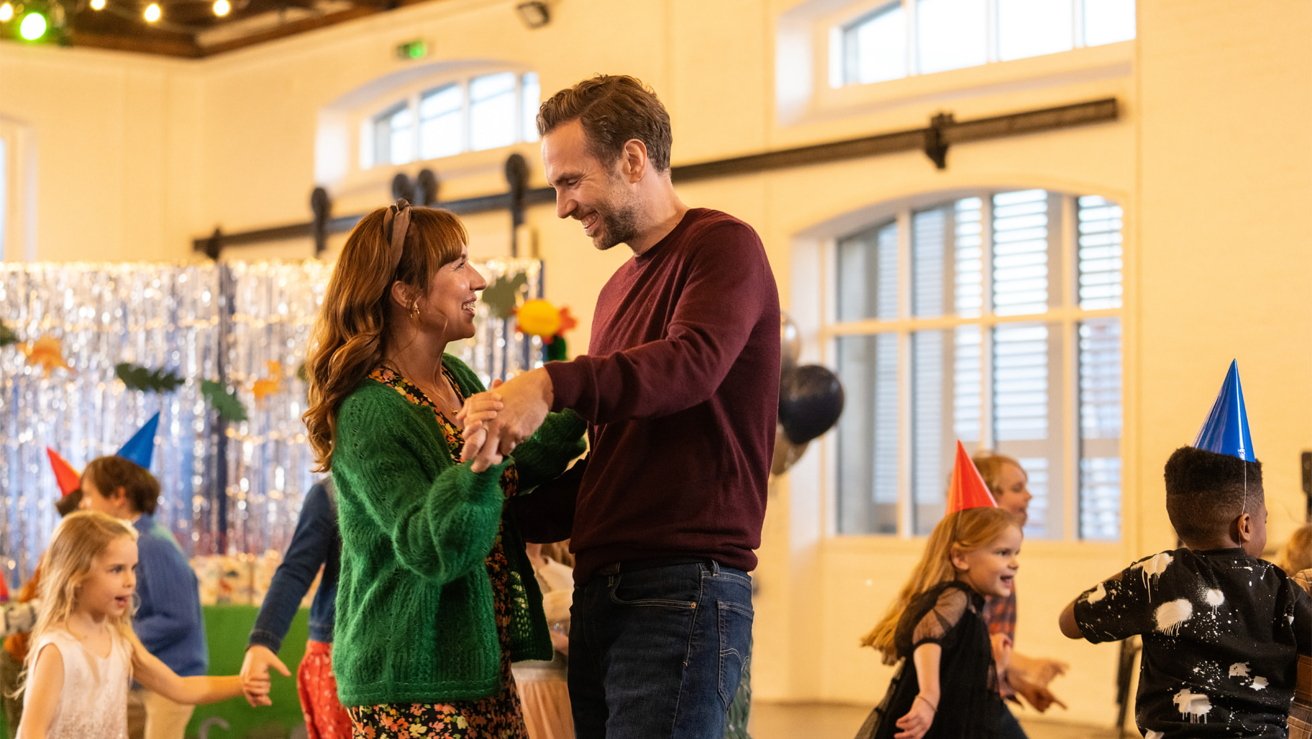
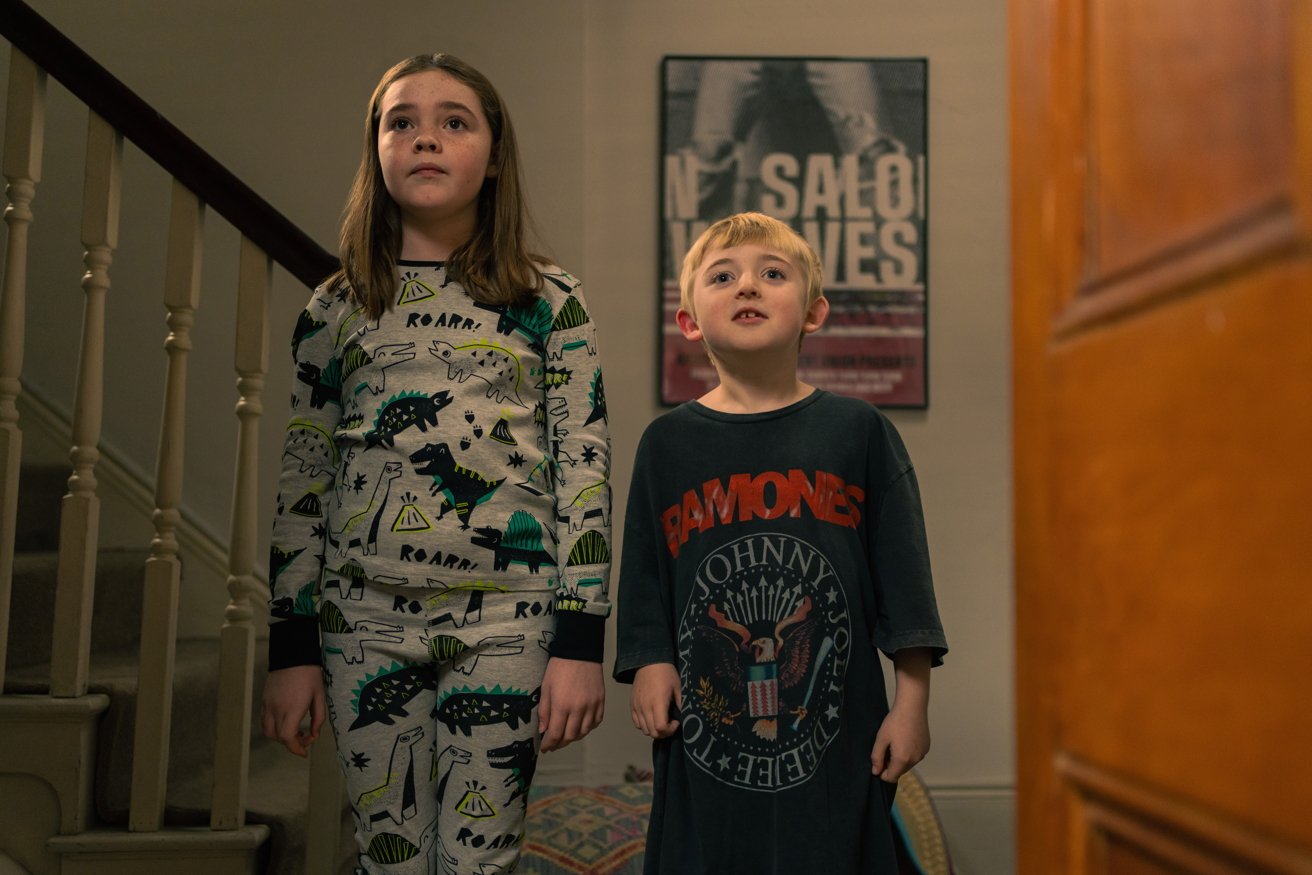
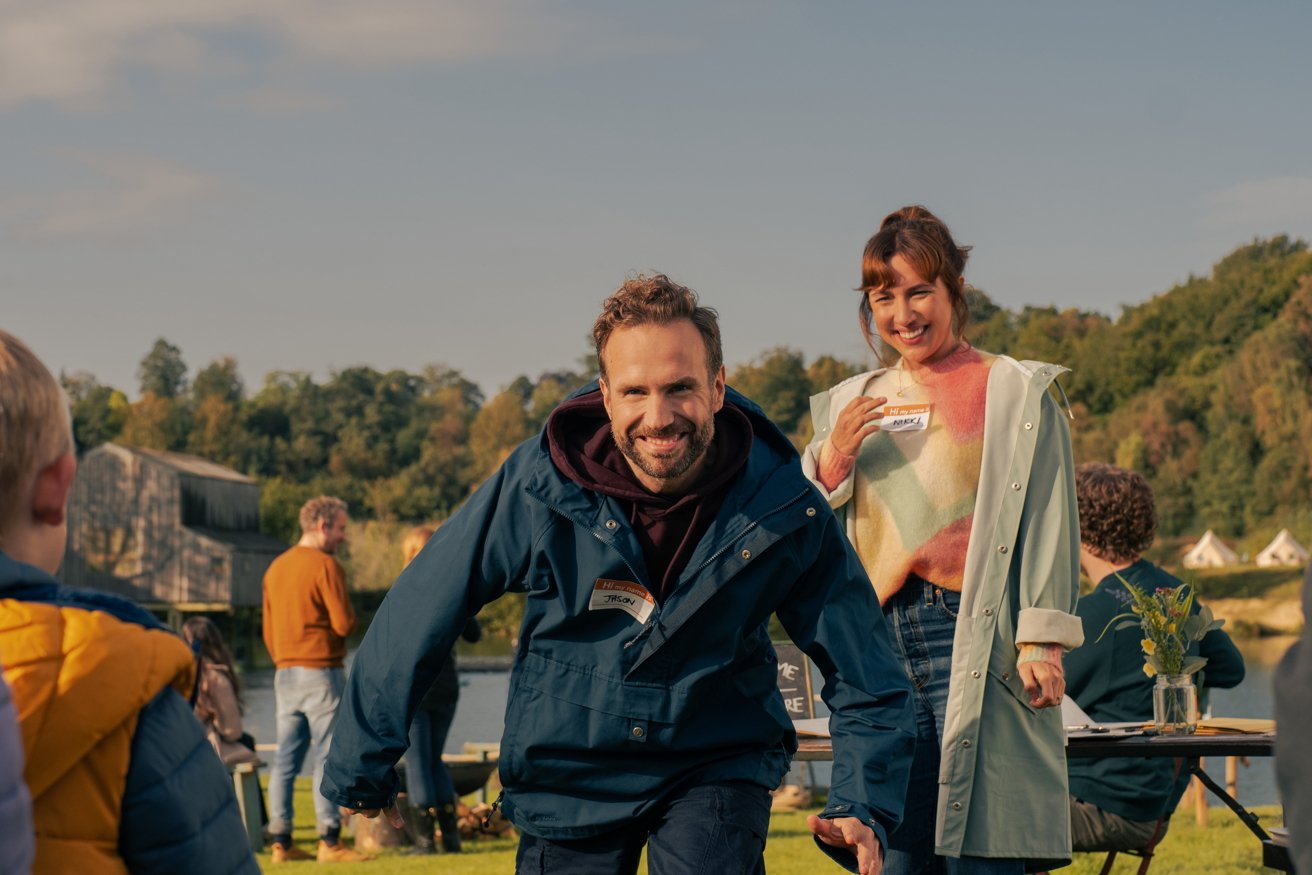
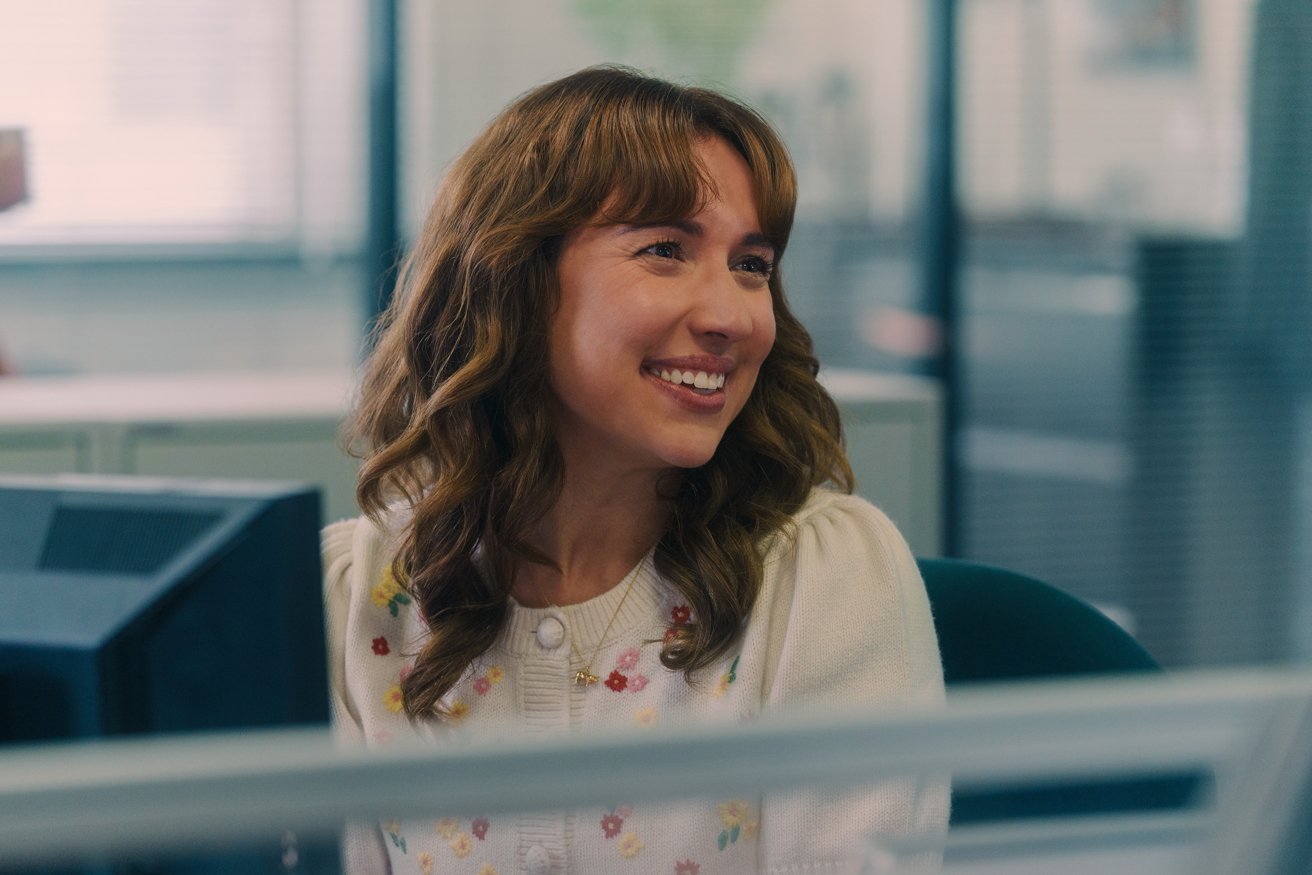
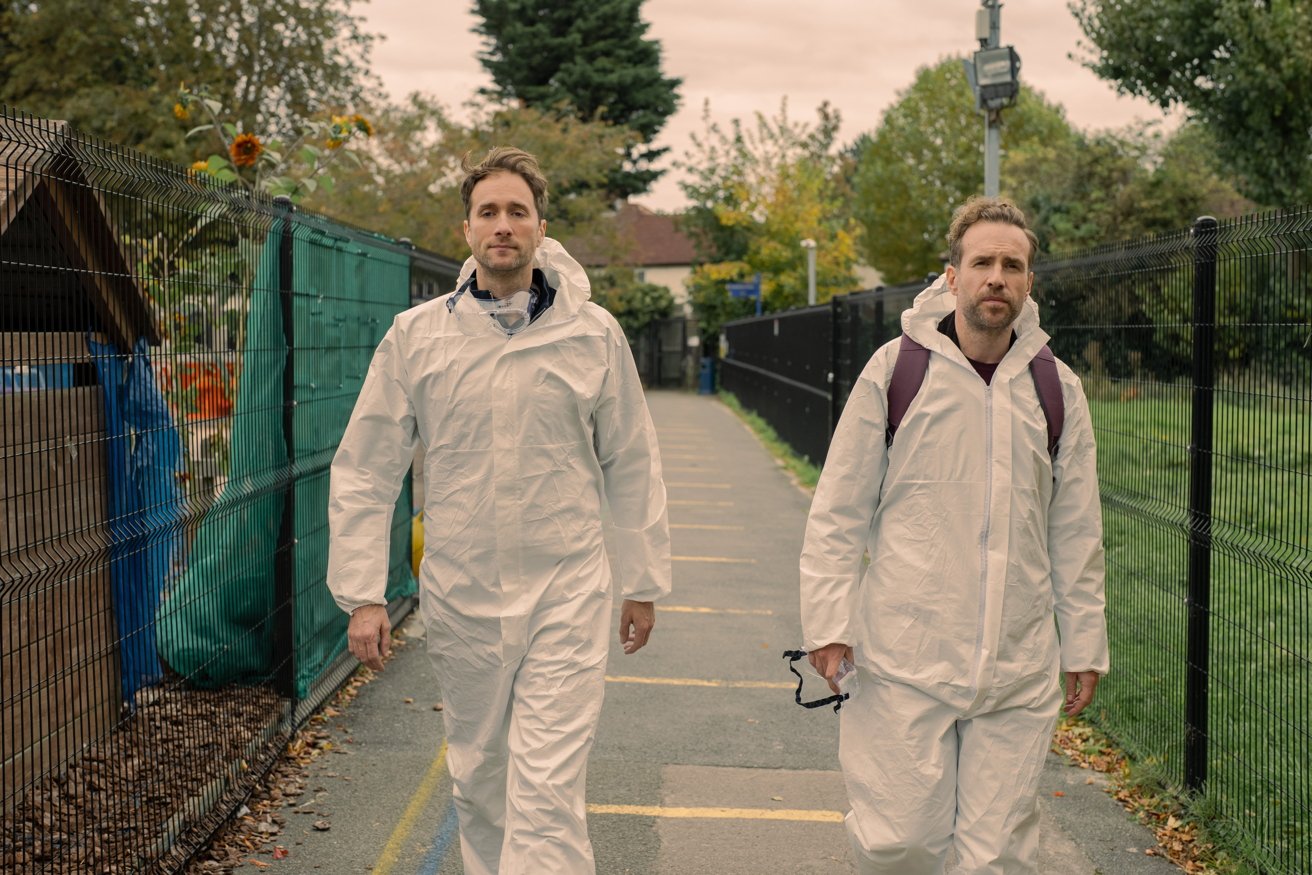
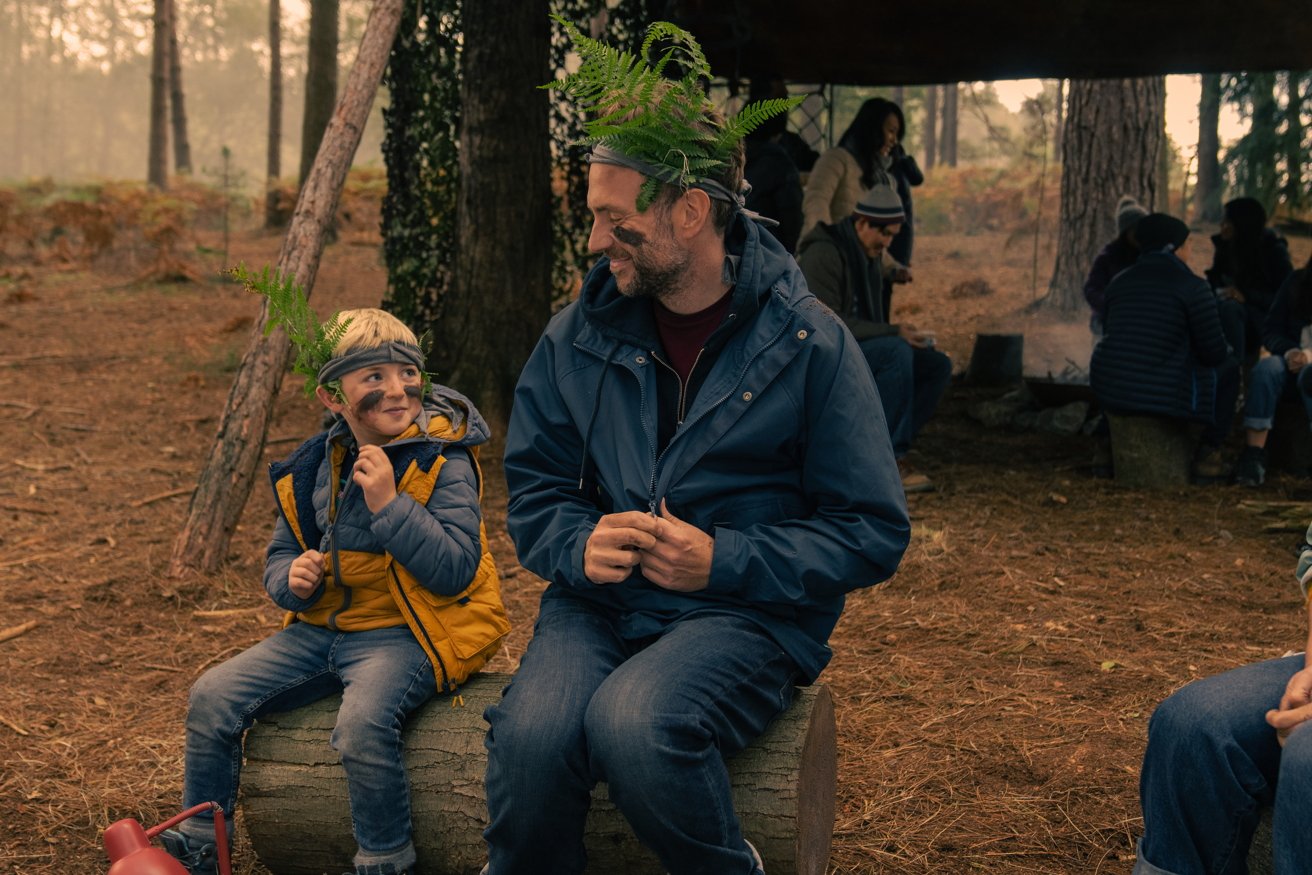
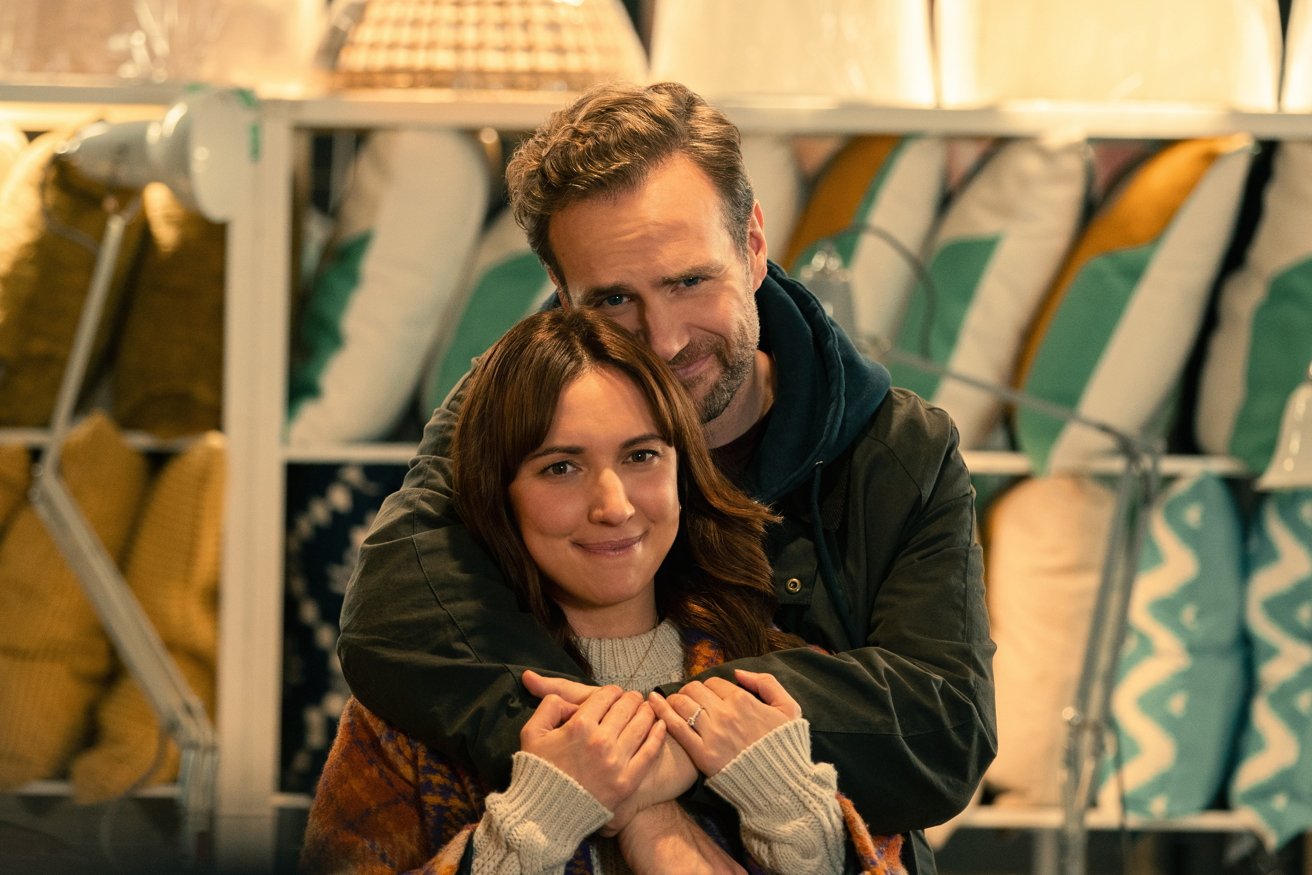







-m.jpg)






 Amber Neely
Amber Neely
 Malcolm Owen
Malcolm Owen
 Christine McKee
Christine McKee

 Chip Loder
Chip Loder
 Marko Zivkovic
Marko Zivkovic
 Wesley Hilliard
Wesley Hilliard










2 Comments
Great show, watched since day 1.
Only 2 episodes left of S3 now.
Sounds good, gonna have to try this one out.
And good to see this one’s an actual interview, it’s very well done.